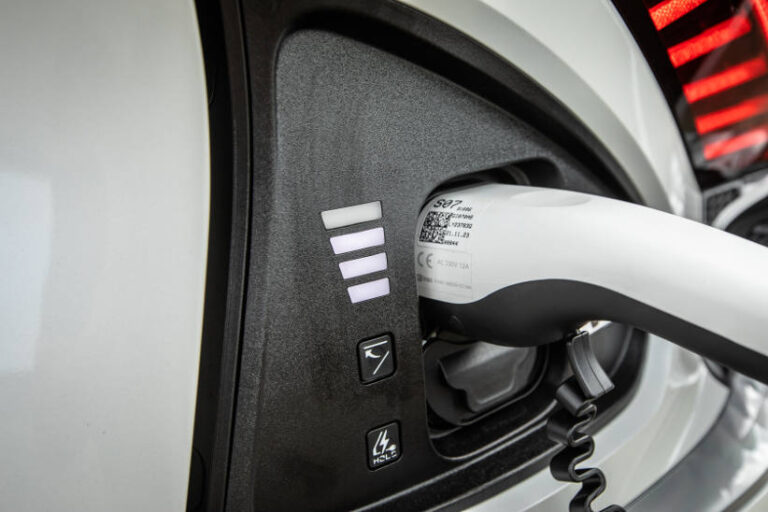Electric vehicle (EV) adoption across the Asia-Pacific (APAC) region is experiencing rapid growth, driven by a mix of government incentives and the proactive involvement of businesses. With World EV Day in September focusing attention on zero emission transport for fleets, Fleet Auto News spoke to David Brown, Associate Vice President for APAC at Geotab, to find out how this transition is playing out in different countries across the APAC region. We found out that while Australia has been slower in embracing EVs, countries such as Thailand and Indonesia are leading the charge with government initiatives that actively encourage the shift to electric.
Government support driving EV growth
In countries like Thailand and Indonesia, government-led initiatives are crucial in fostering a sustainable transition to electric vehicles. These nations are not just focusing on the vehicles themselves but are looking at the entire ecosystem. Brown highlighted that Thailand has implemented incentive programs to encourage businesses involved in electric projects, particularly in battery manufacturing and recycling. These programs offer tax breaks and other financial incentives, which have spurred companies to invest in electric and sustainability-related projects.
Similarly, Indonesia is aggressively pushing for a 100% EV transition by 2050. This ambitious target involves ensuring that no more internal combustion vehicles will be sold after that point. To support this goal, Indonesia is developing infrastructure to facilitate this transition, such as public charging stations, and encouraging businesses to get involved in EV projects.
In Singapore, the approach is different but equally effective. The government provides rebates to individuals who purchase electric vehicles. While this incentive is primarily aimed at private buyers, it reflects a broader strategy to reduce carbon emissions and meet the country’s goal of carbon neutrality by 2030. These rebates are especially valuable given Singapore’s high vehicle costs due to documentation and registration fees, which adds a significant financial burden to car ownership.
The challenge of fleet management in Asia
One of the key differences between Southeast Asia and countries like Australia is the way fleets are managed. Fleet management organisations (FMOs) are commonly used in Australia to help businesses acquire and manage their vehicle fleets. This allows companies to lease vehicles for a set period, typically around three years, and then replace them, ensuring they are always using modern and efficient vehicles.
However, as Brown pointed out, FMOs are not widely used in Southeast Asia. Instead, many businesses purchase their vehicles outright and keep them for as long as possible, often until they are no longer operable. This presents a unique challenge for fleet operators in these countries, as the lack of a structured fleet management system means that businesses are not always optimising their fleet performance, particularly when it comes to battery management for EVs.
In these markets, the ability to prolong the lifespan of a vehicle’s battery is critical. Brown noted that in Indonesia, businesses are keenly interested in understanding how to maximise the longevity of their EV batteries. Geotab’s telematics solutions play a significant role in this area, providing fleet operators with data that helps them manage battery health and predict when a battery will need replacing.
Infrastructure development: The key to success
Beyond government incentives and battery management, infrastructure development is essential for the success of EV adoption in Asia. Thailand, for example, boasts over 12,000 public charging stations, with the majority concentrated in Bangkok. These stations are designed for vehicles that need to charge while parked for short periods, such as during shopping or while at work. The development of such infrastructure is crucial for encouraging the widespread use of EVs, particularly in densely populated urban areas.
In Australia, the lack of infrastructure has been one of the major barriers to EV adoption. While the government has recently taken steps to incentivise the transition to electric vehicles, supply chain issues are slowing down the availability of EVs. According to Brown, Australia is currently facing a significant demand for electric buses, with many governments placing orders, but supply delays mean that these buses will not be available for another six to eight months. This has been a major sticking point for fleet managers, who are eager to make the switch but are held back by logistical challenges.
The future of EVs in Asia
Looking ahead, the future of EV adoption in Asia looks promising. Governments in countries like Thailand, Indonesia, and Singapore are setting aggressive targets and providing the necessary support to ensure the transition to electric vehicles. As Brown highlighted, these countries are not just focused on getting more EVs on the road, but they are also investing in the infrastructure and technology needed to support this transition in the long term.
For fleet managers in these markets, the key challenge will be balancing the initial investment in EVs with the long-term cost savings they can achieve through better battery management and optimised vehicle use. While FMOs are not yet common in Southeast Asia, the growing awareness of the benefits of fleet management solutions, such as those offered by Geotab, could lead to increased adoption of these services in the coming years.
The electric vehicle market in Asia is evolving rapidly, with countries like Thailand and Indonesia leading the way through government incentives and a focus on sustainable infrastructure. Fleet managers in these countries face unique challenges, particularly when it comes to battery management and the lack of fleet management organisations. However, with the right tools and data, businesses can maximise the lifespan of their vehicles and make informed decisions about when to replace batteries and vehicles.
As more governments and businesses in Asia invest in electric vehicle infrastructure, the region is well on its way to becoming a global leader in EV adoption. The role of fleet managers in this transition will be critical, and with the support of telematics solutions like those offered by Geotab, they will be better equipped to navigate the complexities of EV adoption and ensure their fleets remain efficient, sustainable, and cost-effective.






